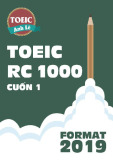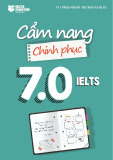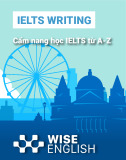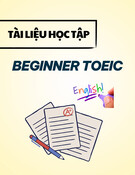
Education Topic
A Foundation for Growth
Education is a vital element in the development of individuals and society as a whole.
From a young age, every student embarks on their learning journey at school, where
teachers not only impart knowledge but also serve as guides and mentors. In the
classroom, students engage with various subjects ranging from mathematics to
history, broadening their perspectives and enhancing their critical thinking skills.
Each day, students tackle homework assignments that help reinforce the material
covered in class. Completing these tasks is crucial for preparing for upcoming exams,
which assess their understanding and retention of the curriculum. The library serves
as an invaluable resource, providing students with access to a wealth of information
and materials to support their studies. Here, they can delve deeper into subjects of
interest and participate in enriching lessons led by their teachers.
As students progress through their education, achieving good grades becomes a
primary goal. The principal plays a significant role in fostering an environment
conducive to learning and ensuring that the curriculum is diverse and engaging.
Additionally, the presence of a tutor can enhance a student's understanding of difficult
subjects, providing personalized support that is often necessary for academic success.
Each semester presents new opportunities for growth and learning. Many students
aspire to earn a scholarship to further their education, which can open doors to
prestigious institutions and programs. The enrollment process for these scholarships
often requires students to demonstrate their commitment and excellence in their
studies. Attendance is also critical; regular participation in class not only reflects a
student's dedication but is often mandatory for maintaining good standing in the
academic community.
Assignments are essential components of the educational process, allowing students
to apply what they have learned in practical contexts. They facilitate the development
of research skills, critical thinking, and creativity. As students engage in study, they
begin to understand the importance of discipline and time management, preparing
them for the challenges they will face in higher education and beyond.

Graduation marks a significant milestone in a student's life. The ceremony celebrates
their achievements and symbolizes the completion of a phase in their educational
journey. Many students transition to campus life at universities, where they reside in
dormitories and participate in lectures and seminars that further expand their
knowledge. The university experience often includes the creation of a thesis or
project, which demonstrates their ability to conduct independent research.
Choosing a major and minor is an important decision during this time, allowing
students to specialize in areas that align with their interests and career aspirations.
Maintaining a strong GPA (Grade Point Average) is crucial, as it often determines
eligibility for advanced programs and employment opportunities after graduation.
The syllabus outlines the requirements and expectations for each course, guiding
students in their academic endeavors.
Extracurricular activities play a significant role in shaping a well-rounded education.
Participation in clubs and organizations encourages students to develop leadership
skills and build social networks. These activities are considered elective choices that
complement academic studies and provide valuable life experiences.
Research and assessment are integral to the educational process. Students are often
required to participate in various forms of assessment to evaluate their understanding
of the material. Seminars and workshops provide additional avenues for learning and
collaboration, fostering a sense of community among peers.
The foundation of education lies not only in the acquisition of knowledge but also in
the development of critical life skills. Mentorship programs can enhance the
educational experience, connecting students with experienced professionals who can
offer guidance and support. Peer relationships formed during this time often lead to
lifelong friendships and professional connections.
In conclusion, education is a multifaceted journey that shapes individuals and society.
It is a process that begins in the classroom and extends far beyond the walls of a
school. The combination of effective teaching, dedicated students, supportive
environments, and diverse opportunities culminates in a rich educational experience.

As students navigate their way through various subjects, they develop the skills and
knowledge necessary to thrive in an ever-changing world. The importance of
education cannot be overstated, as it lays the groundwork for personal growth, social
development, and a brighter future for all.
Word List
Dưới đây là danh sách 50 từ vựng chủ đề giáo dục cùng nghĩa tiếng Việt và câu ví dụ
cho mỗi từ:
1. school: Trường học
- "The school is very big." (Trường học rất lớn.)
2. teacher: Giáo viên
- "The teacher explains the lesson clearly." (Giáo viên giải thích bài học một cách
rõ ràng.)
3. student: Học sinh
- "Every student must do their homework." (Mỗi học sinh phải làm bài tập về nhà
của mình.)
4. classroom: Phòng học
- "The classroom is full of students." (Phòng học đầy học sinh.)
5. homework: Bài tập về nhà
- "I finished my homework early." (Tôi đã hoàn thành bài tập về nhà sớm.)
6. subject: Môn học
- "Math is my favorite subject." (Toán là môn học yêu thích của tôi.)
7. exam: Kỳ thi
- "I am studying for my exam." (Tôi đang học cho kỳ thi của mình.)
8. library: Thư viện
- "The library has many books." (Thư viện có nhiều sách.)

9. lesson: Bài học
- "Today's lesson is about history." (Bài học hôm nay là về lịch sử.)
10. grade: Điểm số
- "I hope to get a good grade." (Tôi hy vọng sẽ nhận được điểm số tốt.)
11. principal: Hiệu trưởng
- "The principal is very supportive." (Hiệu trưởng rất hỗ trợ.)
12. curriculum: Chương trình giảng dạy
- "The curriculum includes various subjects." (Chương trình giảng dạy bao gồm
nhiều môn học khác nhau.)
13. tutor: Gia sư
- "I have a math tutor." (Tôi có một gia sư dạy toán.)
14. semester: Học kỳ
- "The semester ends in June." (Học kỳ kết thúc vào tháng Sáu.)
15. scholarship: Học bổng
- "She received a scholarship to study abroad." (Cô ấy nhận được học bổng để du
học.)
16. enrollment: Đăng ký học
- "The enrollment for the new semester starts next week." (Việc đăng ký học cho
học kỳ mới bắt đầu vào tuần tới.)
17. attendance: Điểm danh
- "Attendance is mandatory in all classes." (Điểm danh là bắt buộc trong tất cả các
lớp học.)
18. assignment: Nhiệm vụ
- "I have an assignment due next Monday." (Tôi có một nhiệm vụ phải nộp vào thứ
Hai tới.)

19. study: Học
- "I study for two hours every day." (Tôi học hai giờ mỗi ngày.)
20. graduation: Lễ tốt nghiệp
- "The graduation is an important event." (Lễ tốt nghiệp là một sự kiện quan trọng.)
21. campus: Khuôn viên
- "The university campus is beautiful." (Khuôn viên trường đại học rất đẹp.)
22. dormitory: Ký túc xá
- "I live in a dormitory with my friends." (Tôi sống trong một ký túc xá với bạn
bè.)
23. lecture: Bài giảng
- "The lecture was very informative." (Bài giảng rất bổ ích.)
24. thesis: Luận văn
- "She is working on her master's thesis." (Cô ấy đang làm luận văn thạc sĩ của
mình.)
25. curriculum: Chương trình học
- "The curriculum is updated every year." (Chương trình học được cập nhật hàng
năm.)
26. major: Chuyên ngành
- "He chose biology as his major." (Anh ấy chọn sinh học làm chuyên ngành của
mình.)
27. minor: Phụ chuyên
- "She decided to take psychology as a minor." (Cô ấy quyết định học tâm lý học
như một phụ chuyên.)
28. GPA (Grade Point Average): Điểm trung bình
- "Her GPA is above 3.5." (Điểm trung bình của cô ấy trên 3.5.)

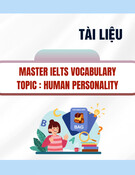
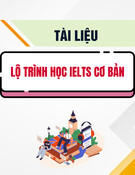
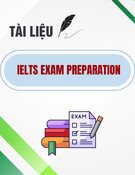
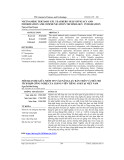


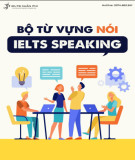

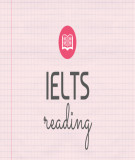
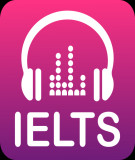
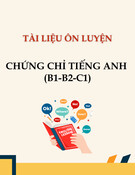
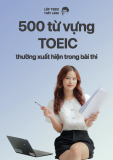
![Tài liệu luyện thi TOEIC cấp tốc trong 10 ngày [chuẩn nhất]](https://cdn.tailieu.vn/images/document/thumbnail/2025/20251029/kimphuong1001/135x160/99661761725822.jpg)
![Tài liệu Phá đảo TOEIC 900+ từ mất gốc trong 30 ngày [Mới nhất]](https://cdn.tailieu.vn/images/document/thumbnail/2025/20251029/kimphuong1001/135x160/2101761720956.jpg)
